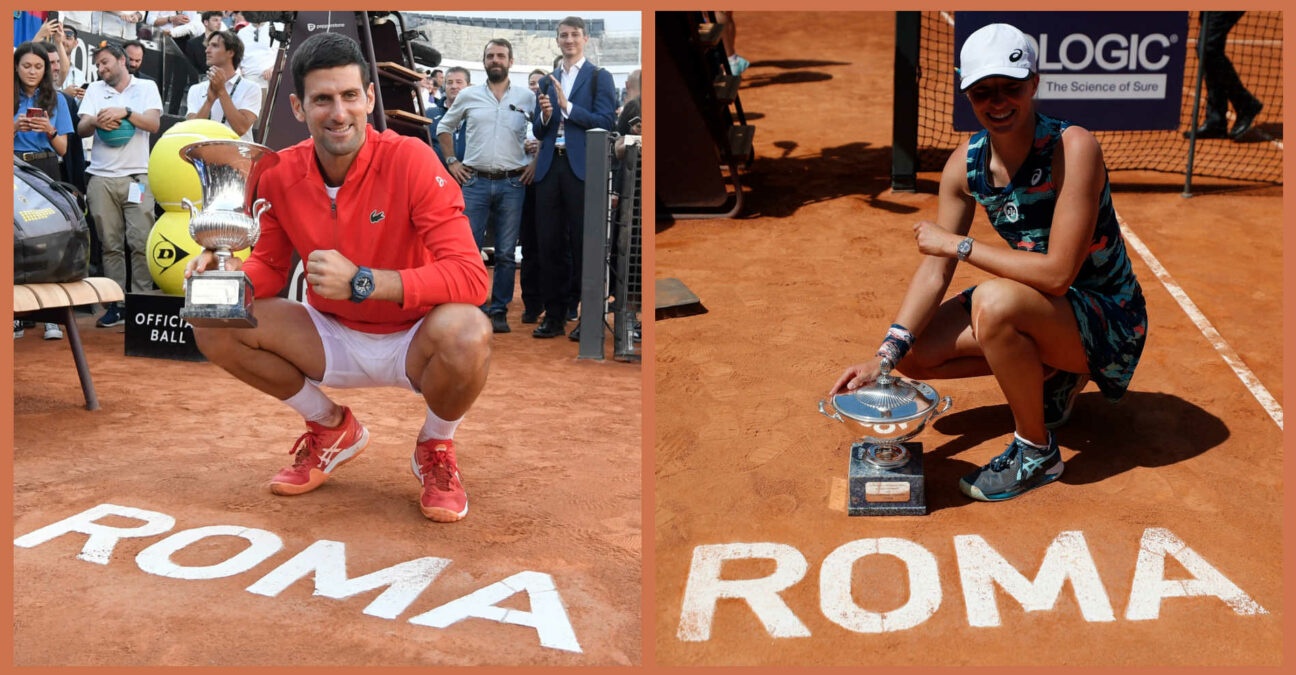Italian Open organisers commit to equal pay for men and women by 2025 – but why not now?
In the face of growing criticism from fans and WTA players, Italian Open organisers have committed to equal pay for men and women by 2025. But some are left wondering why not now?
 Novak Djokovic and Iga Swiatek with their trophies at the 2023 Italian Open
Image Credit: Inside/ AI/Reuters/Panoramic/ Tennis Majors
Novak Djokovic and Iga Swiatek with their trophies at the 2023 Italian Open
Image Credit: Inside/ AI/Reuters/Panoramic/ Tennis Majors
When Italian Open organisers announced a commitment to distributing equal prize money between male and female tennis players by 2025, they were likely hoping to quell some of the recent disquiet surrounding the tournament’s well-documented pay disparity.
Last year, Iga Swiatek took home less than half of her ATP counterpart’s earnings after winning the Italian Open title. This year, while both prize pots have increased in size, so too has the pay gap between the men’s champion and the women’s.
The winner of the ATP side of the event is this year set to receive €1,105,265, while the winner of the women’s event will be awarded €521,754.
Italian Open Prize Money Controversy
While most of the focus in recent years has been on achieving greater parity and alignment between the two tours, it seems an unwelcome and puzzling development that the prize money difference has actually widened at the Italian Open.
It comes hot on the heels of a litany of controversies at the Madrid Open the fortnight prior to Rome, where ball girls’ uniforms, unequal cake sizes and the bizarre denial of speeches in the women’s doubles final all brought the issue of gender inequality sharply back into focus.
While the Madrid Open does award equal prize money between men and women, aside from the four Grand Slams, it is in the minority of tournaments to do so.
Along with the Sunshine Double events in the US, the Madrid Open is one of only three 1000-level events to have awarded equal prize money over the past year.
The Italian Open has come under the spotlight again this year for seemingly going in the opposite direction to some of its 1000-level tournament counterparts.
Italian Open 2025 Pledge
In response to the backlash, Italian tennis federation president Angelo Binaghi announced that things would be changing – in two years.
“For the first time in history we have started the process that over three years will lead to equal prize money between the women’s and the men’s tournaments,” Binaghi said.
Binaghi added that the reason for this increase was because of a female CEO of the Italian Open’s main sponsor (Banca Nazionale del Lavoro), making the necessary funds available – “We can make this big leap because the first female CEO of a big bank in Italy has provided us with the necessary resources.”
This pledge has been welcomed by some quarters, most notably the WTA themselves. In response to Binaghi’s announcement, the WTA told the Associated Press, “With WTA’s continued efforts to achieve equal prize money at all events, we are excited for the commitment that has been made by the Rome event to ensure this is in place by 2025.”
More Questions for Italian Open?
However, others have been left scratching their heads, with the glaring question being – why not bring parity now?
“I don’t know why it’s not equal right now, They don’t inform us. They say this is what you get and you have to play.”
Paula Badosa on the Italian Open’s announcement to bring in equal prize money in 2025
Last year’s Italian Open runner-up, Ons Jabeur, also expressed her dismay. “It’s really frustrating. It’s time for change. It’s time for the tournament to do better.”
Some tournament organisers point to a market that currently values men’s tennis more than women’s, meaning sponsors and broadcasters will pay more for men’s matches.
But when the four most important tournaments in the sport have been awarding equal prize money for at least a decade – and, in the cases of the Australian and the US, for much longer – it seems difficult for established and well-supported tournaments such as Rome to justify a widening pay disparity.
An announcement committing equal prize money by 2025 may go some way to calming stormy waters for now, but it also makes the Italian Open vulnerable to intense criticism should they miss this target.
For many others, it simply raises more questions than it provides answers.









